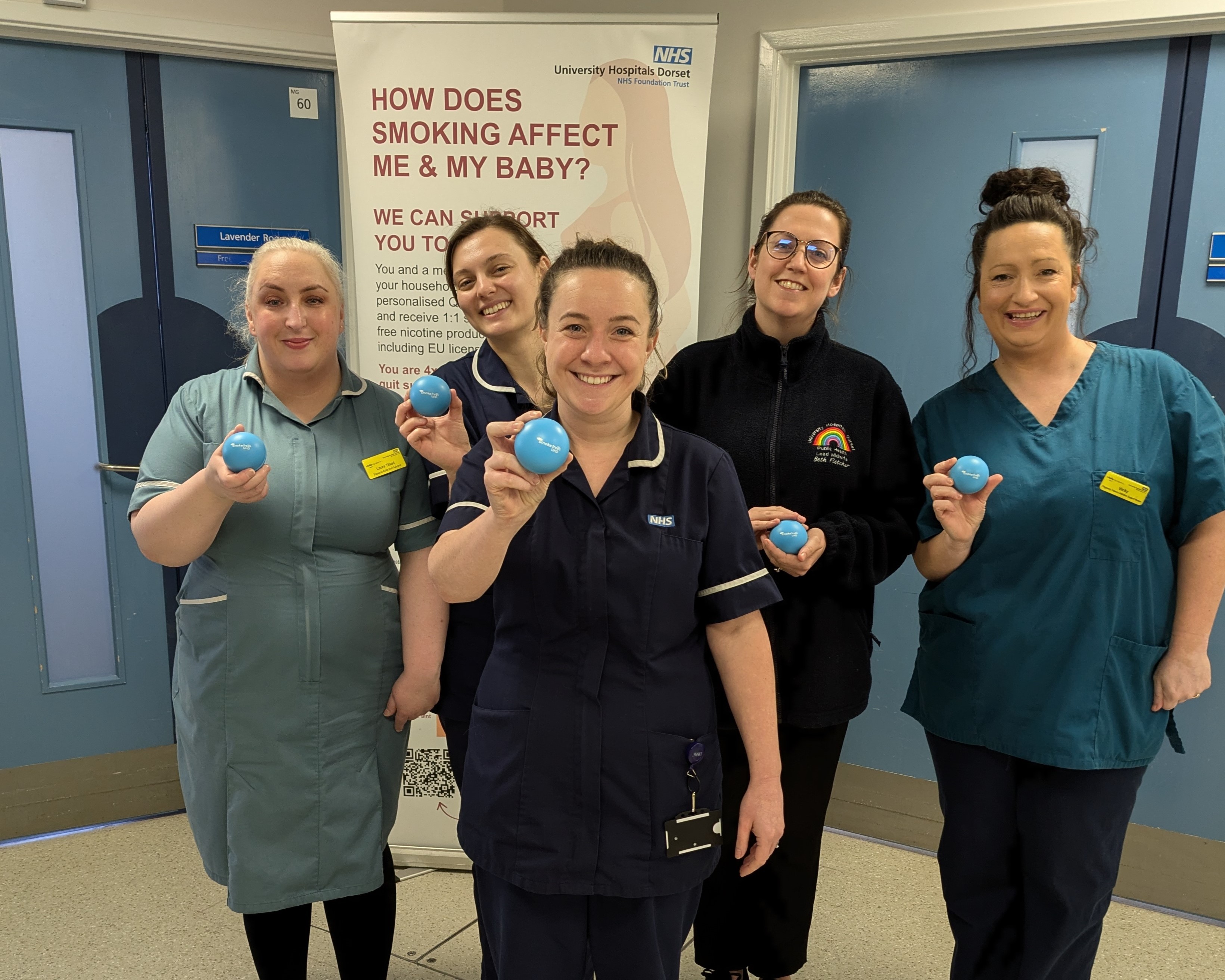£1.3m solar panel funding awarded to University Hospitals Dorset
University Hospitals Dorset has been awarded £1,368,761 to install further solar panels at Poole Hospital and the Royal Bournemouth Hospital (RBH), saving £177k a year in energy costs and supporting investment into frontline care.
It is part of a wider £100m package from Great British Energy, announced by the Department for Energy Security and Net Zero and supporting the NHS to install solar power and battery storage solutions to help drive down energy bills.
The grant will fund solar panels on multistorey car parks and will fully cover the cost of delivering these new panels. The solar panels are expected to generate 700,000 kWh each year, reducing energy bills by £177k per each year. The panels are guaranteed for 15 years meaning UHD will save at least £2.5m in energy costs over the life of the project. The installation will take place this summer and will contribute around 200 tonnes of carbon savings each year.
UHD’s Sustainability and Carbon Manager, Stuart Lane, said: “This is a real boost to our Green Plan and good for our finances too. We have also commissioned several other solar panel projects and this funding will accelerate the pace at which we can meet the full potential of solar generated on our sites, meaning we are a step close to our net zero targets and redirecting energy costs to patient care”.
UHD is also taking a new approach to the decarbonisation of its estate with efficient new hospital buildings such as the new BEACH Building and a £2.1m LED lighting investment to bring older buildings up to modern standards.
Chief Sustainability Officer at NHS England, Chris Gormley, said: “Thanks to the dedication of teams nationwide, the NHS has already implemented hundreds of projects that enhance energy efficiency and drive significant cost savings. This groundbreaking new investment, across 78 NHS Trusts on around 200 sites, will expand solar power generation within the NHS by over 300%, slashing energy costs by hundreds of millions of pounds. These vital savings can be reinvested directly into frontline care, ensuring the NHS continues to deliver for our patients and communities.”

New partnership enhances ‘gateway to the hospital’ at Royal Bournemouth’s BEACH Building
University Hospitals Dorset (UHD) has teamed up with One Retail to enhance the patient, staff and visitor experience at its new BEACH (Births, Emergency, And Critical care, children’s Health) Building at Royal Bournemouth Hospital.
Opening in April, the upgraded main entrance will feature a 24/7 Costa Coffee, a Co-op convenience store, and a Stock Shop for clothing, alongside vital hospital services including the Chaplaincy Centre, Charity facilities, Patient Advice and Liaison Service (PALS), and a dedicated Volunteer Hub.
The new BEACH Building will offer patient facilities for top class care, as part of a £500m investment in local health services. The new building spans 23,000m2, the equivalent of 115 tennis courts and will include a new maternity and neonatal unit, enhanced emergency department, dedicated imaging facilities, including x-ray and CT scanning and a critical care unit with a 30-bed capacity.
One Retail will be investing in the retail services to offer a range of products and services encompassing quality, familiarity and choice. One of the first Co-op stores within a hospital site will be opening within the building, sharing One Retail and Trust values such as championing the local community, and prioritising access to healthy and ethically sourced products. It has been designed with sustainability principles in mind, with low energy refrigeration and lighting being incorporated, as well as using recycled materials for signage.
The Co-op will provide access to food and drink, conveniently, to better serve patients, employees and visitors to the site, including sandwiches and food to go, meals for later and key essential products for a hospital environment such as toiletries. Co-op member-pricing also means that its members can save move money on the items shoppers buy the most.
Costa Coffee will be opening 24/7* to serve food and drinks around the clock. One Retail will be creating a dedicated NHS staff area for colleagues to take a break, away from the clinical hospital environment. The store will serve a range of hot and cold food, as well as its range of beverages, with seasonal options. The team will utilise self-service kiosks, click and collect services and the loyalty scheme. A Stock Shop offering high quality clothing, essentials and gifts will also be opening.
This partnership within the Trust’s new building, evolves an existing relationship between the University Hospitals Dorset NHS Foundation Trust and One Retail, who have worked together for around 10 years within Poole Hospital.
Overall, the new retail outlets have created over 40 jobs within the local Dorset area. One Retail will also be working with food redistribution charity, Too Good To Go, which will avoid good to eat food going to waste.
Richard Renaut, UHD’s Chief Strategy and Transformation Officer said:
"We are delighted to partner with One Retail in creating a new gateway to the hospital—the centrepiece of the BEACH Building at Royal Bournemouth Hospital—enhancing the experience for patients, staff and visitors alike.
"This partnership builds on our in-house services to elevate our food and retail offerings. The new main entrance will feature an improved reception, dedicated space for the Patient Advice and Liaison Service (PALS), a welcoming chaplaincy area, and a hub for charity and volunteers.
"We’re also strengthening in-house catering with initiatives like Café West’s reopening, 24/7 hot food availability, and a pre-order app to cut down on queues—all designed to serve our community for years to come."
Andrew Jones, One Retail, Managing Director said:
“I am absolutely thrilled to bring Co-op into our suite of brand partners – they have a great range and I am sure the people working and visiting the hospital will welcome their offer.
“I am especially proud of the much-needed staff wellbeing area within the Costa Coffee, we all know how hard people work within the NHS and I hope this provides a place to take a break when needed.
“Our partnership with University Hospitals Dorset NHS Foundation Trust goes from strength to strength and our teams are really excited to be part of the new BEACH building.”
Martin Rogers, Director of Partnership Development, Co-op, commented:
“We are delighted to be working in partnership with University Hospitals Dorset (UHD) and One Retail.
“Our franchise partnerships are bringing Co-op and the benefits of membership to new, exciting and diverse communities as part of our growth plan.
“Our stores are designed to be a hub combining great quality products, value, deals and ethical retailing conveniently, along with community participation and additional customer services.
“We are proud to launch our latest store in a hospital environment, and be part of the retail solutions developed within the new Births, Emergency, And Critical care, children’s Health Building (BEACH) at Royal Bournemouth Hospital.”
*Costa Coffee will close for a few hours every week, while systems update.
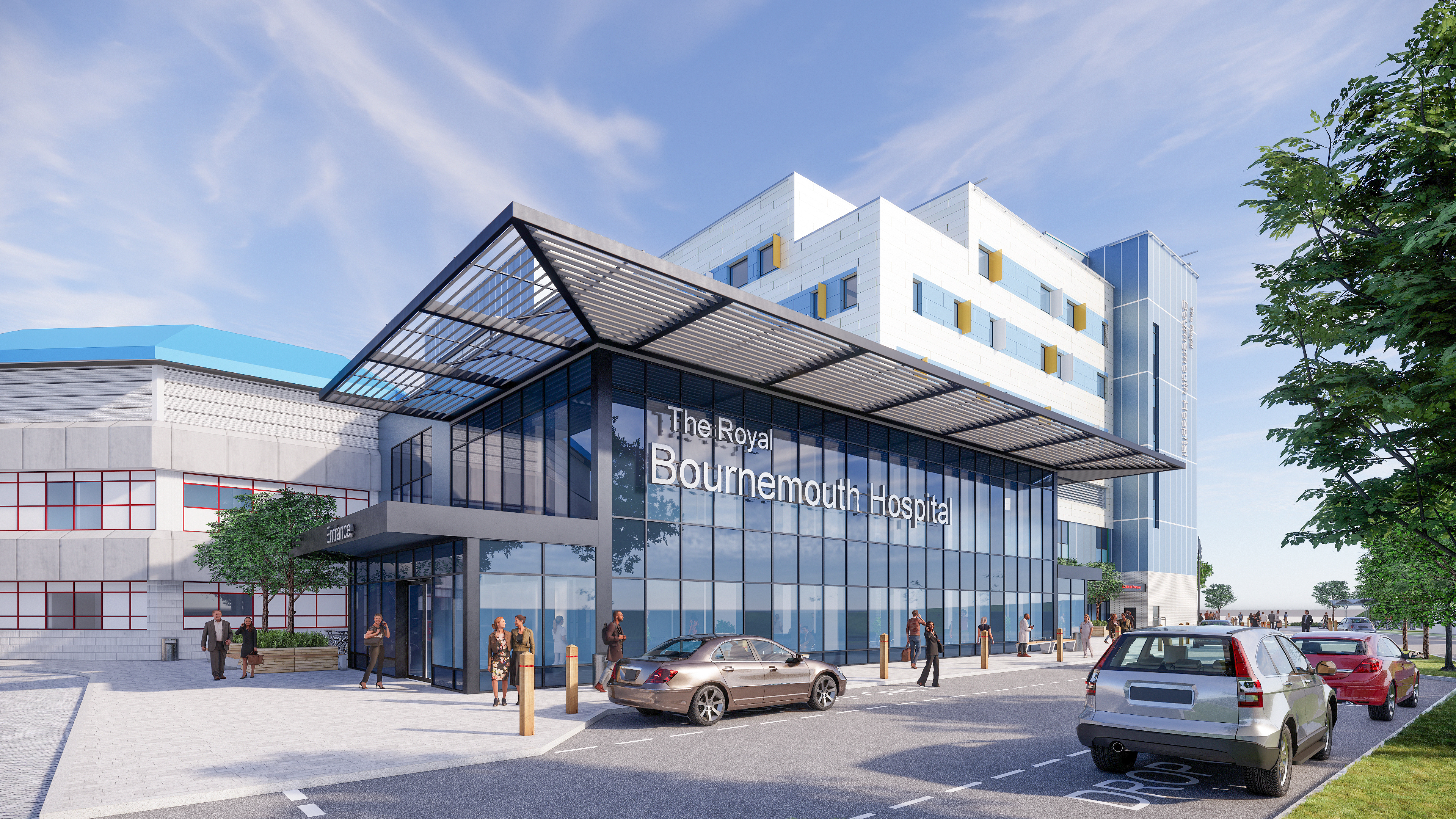
New maternity, neonatal and emergency gynaecology units to open at RBH on 31 March 2025
The new maternity, neonatal and emergency gynaecology units at the Royal Bournemouth Hospital, will officially open at 8am on 31 March 2025.
The BEACH Building based state-of-the-art maternity and neonatal unit brings the latest amenities and exceptional care to parents in east Dorset. It will offer everything parents need for a smooth journey from pregnancy to birth and beyond. The UHD team are focused on making sure parents-to-be and their families feel comfortable, safe, and well taken care of. With best-in-class equipment and a dedicated team, the maternity and neonatal team are ready to welcome over 4,400 babies a year into this modern, welcoming environment.
In addition, all emergency gynaecology and early pregnancy services will also be moving to RBH on 31 March.
Parking for those in labour or requiring urgent care will be available directly outside the BEACH Building. For routine appointments, patients are advised to use the designated patient car park, which is clearly signposted. In addition, a support person will be permitted to stay for the duration of admission, ensuring families can benefit from a more comfortable and supportive experience.
A small number of mothers and babies will require already arranged enhanced care transfer from St Mary’s Maternity Unit to the BEACH Building as part of this transition. We are not anticipating emergency ambulance transfers will be required during the move period from St Mary's to the BEACH.
While every effort will be made to minimise disruption, no transfers will take place during labour. Any individuals affected will be ful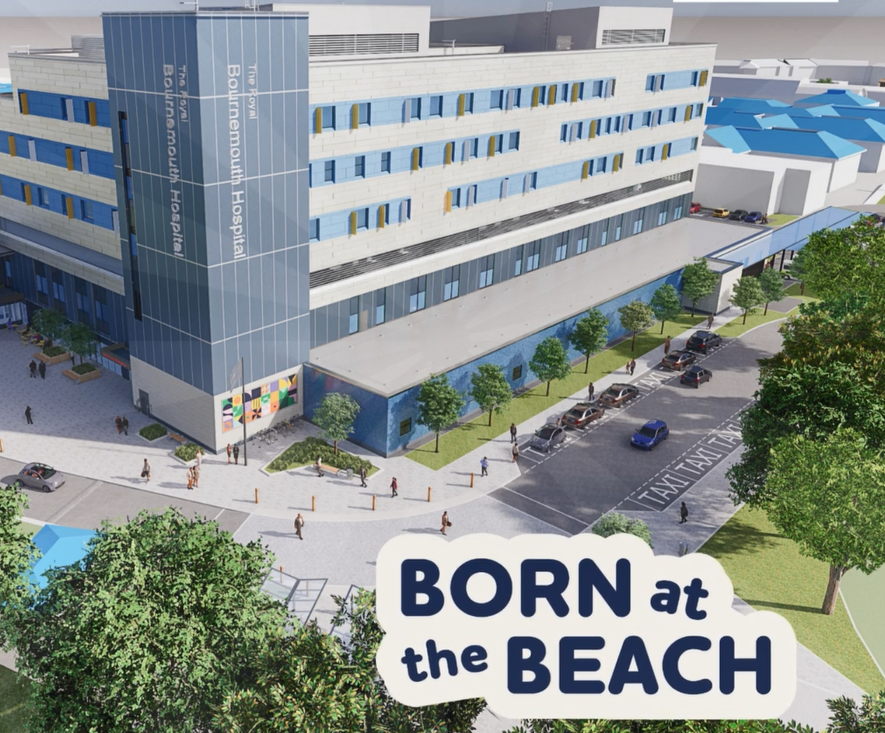 ly informed, and plans will be coordinated to ensure a smooth transition.
ly informed, and plans will be coordinated to ensure a smooth transition.
Commenting on the announcement, Sarah Herbert, UHD’s Chief Nursing Officer, said:
“This relocation marks a significant advancement in maternity, neonatal and emergency gynaecology services, providing modern, state-of-the-art facilities designed to enhance the experience for parents and newborns.”
“With improved amenities, including provisions for a support person to remain throughout the stay, our new units represent a commitment to delivering the highest standard of care.”
“The team are looking forward to welcoming expectant parents and families to our new facilities from the 31 March.”
All emergency gynaecology and early pregnancy services will also be moving to RBH from Monday 31 March. Anyone self-presenting with a suspected gynaecology issue should attend RBH not Poole.
Further information
- Until this date, all maternity care will continue to be provided at St Mary’s Maternity Unit. From the morning of 31 March, all maternity services will be delivered from the new facility.
- The BEACH Building is a 22,650m², six-storey facility dedicated to patient care. In addition to the new maternity and neonatal unit, it includes a children’s unit, an enhanced emergency department, and a larger critical care facility.
- The move is part of the plan to focus all emergency care at Royal Bournemouth Hospital, providing better, faster care for everyone. This will mean fewer patient transfers between hospitals, less stress on the county’s ambulance service, and better outcomes for expecting parents and their babies.
Further information and updates are available via ‘Born at the BEACH’ – Maternity Matters Dorset: The BEACH building – Maternity Matters Dorset

Celebrating our cancer clinical nurse specialists
Today, Friday 14 March, is National Cancer Clinical Nurse Specialist Day (CNS Day), and here at University Hospitals Dorset (UHD), we are taking the opportunity to raise awareness and celebrate the vital contribution of this workforce across our hospitals.
Cancer is a complex and significant disease that will affect 1 in 2 of us during our lifetime. In the UK, the number of people living with a cancer diagnosis is set to double to 4 million in 2030.
In order to meet the ever-increasing needs of people living with cancer now and in the future, the development and investment of the cancer workforce is crucial, and Clinical Nurse Specialists are needed more than ever before.
CNS' are highly skilled professionals who provide expert care and support to patients throughout their cancer journey. They play a fundamental role in coordinating and delivering personalised care interventions, addressing both the physical and emotional needs of patients.
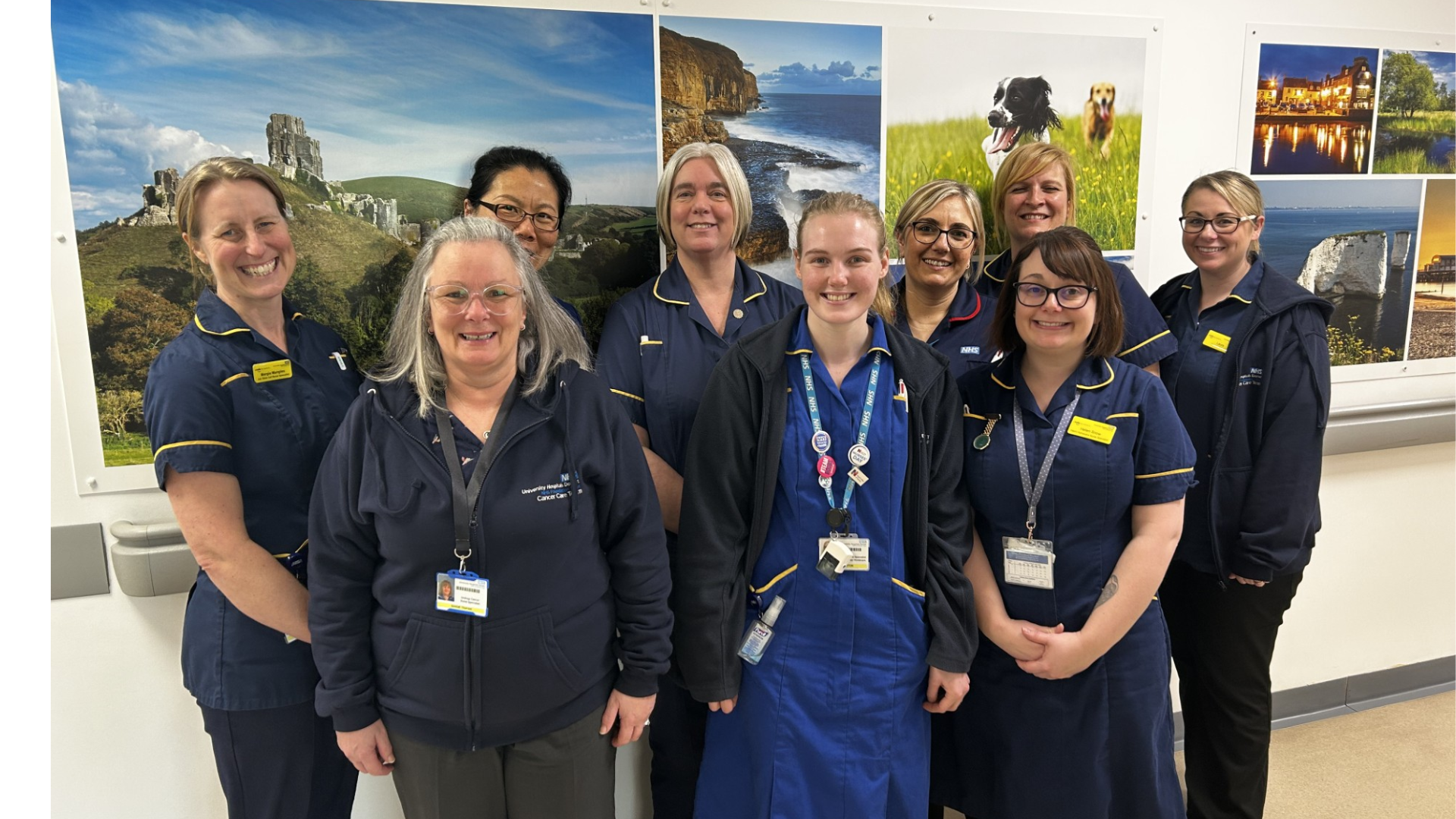
Clinical Nurse Specialists at the Royal Bournemouth Hospital
Sarah Puttick has worked as a nurse in Haematology for 26 years, six of those as a CNS. She said: "I enjoy supporting our patients from diagnosis, treatment and in the recovery phase and their families. It is vitally important for our patients to have a point of contact through a very difficult time to help reduce anxiety and to generally support."
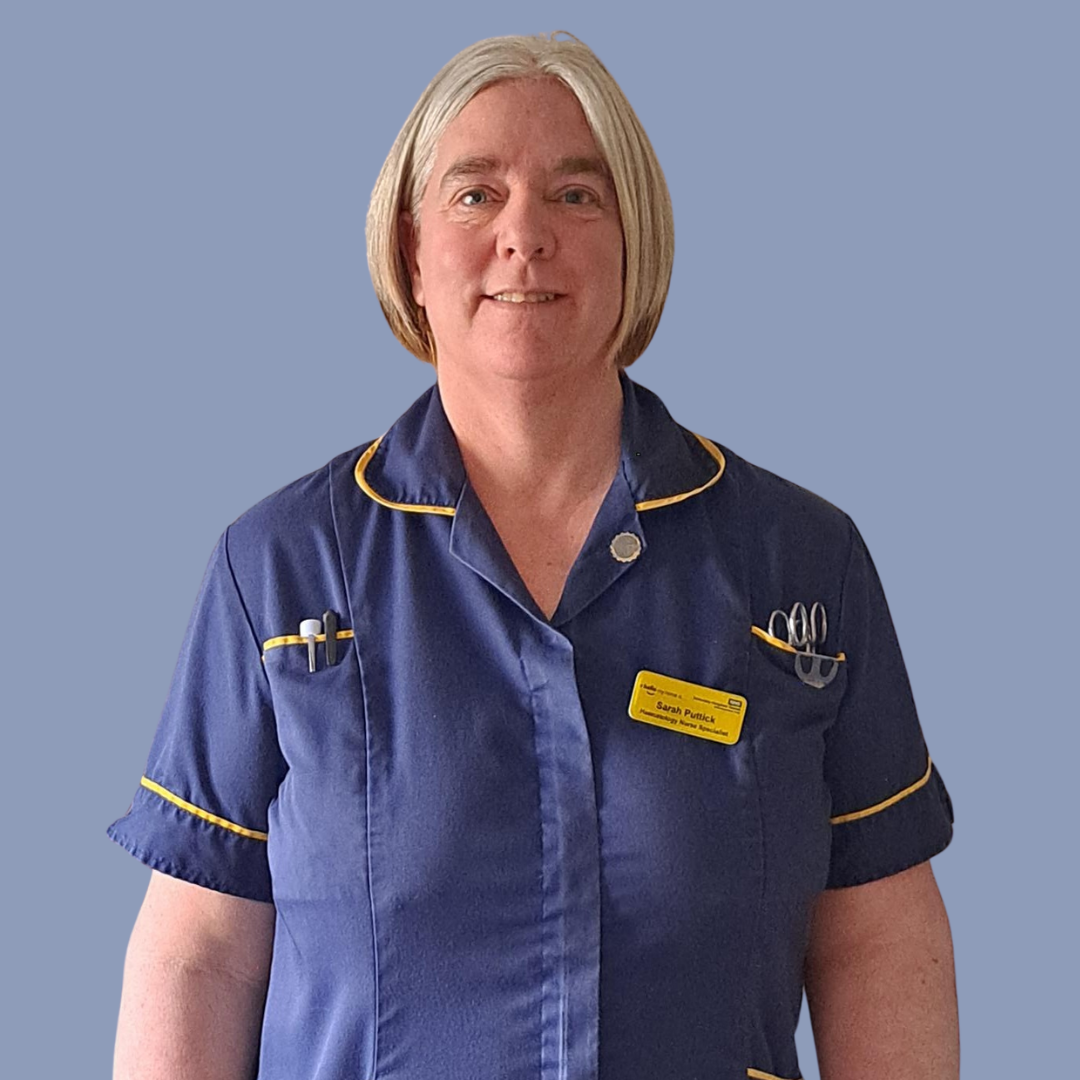
Jo Valentine and Claire Smith are the Cancer Nurse Specialist Lead and Lead Cancer Nurse resepctively at UHD. They said:"We witness on a daily basis these nurses going above and beyond to ensure that their patient on a cancer pathway receives the best supportive care possible."
"They contribute to improving the patient's quality of life and their experience of care, and potentially their survival. With treatments becoming more advanced, patients are living longer, and the CNS is present from the moment of diagnosis through treatment and beyond. Even after treatment is stopped, the CNS is an invaluable support for the patient at this stage."
"We would like to thank all of them today for their hard work and dedication to their individual services and patients, always ensuring patients are truly supported through this difficult journey."
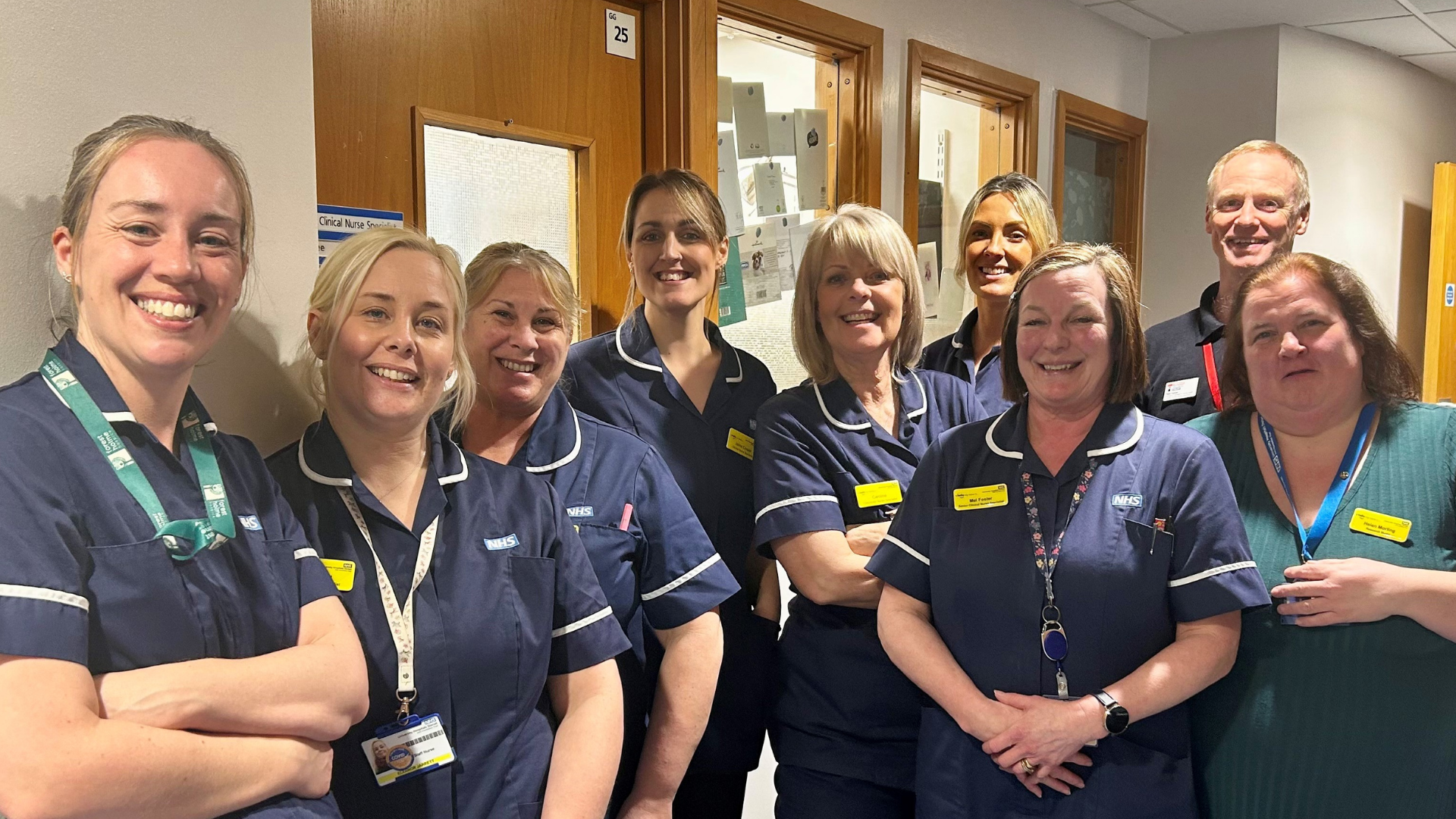
Clinical Nurse Specialists at Poole Hospital
"If anyone is thinking of a career in cancer nursing, this is one of the most rewarding specialities to work in. There is opportunity for extended roles, autonomy and professional development, working towards advanced clinical decision making with patient assessment and prescribing skills and also being involved in supporting education and innovation."
For more information about the role including contact details to enquire about future positions, head to our website page here, and for further insight into CNS Day, head here.
UHD hospital sites go smoke free
All of University Hospitals Dorset’s sites are now smoke free, offering a healthier environment for all patients, visitors and colleagues.
The move, which coincided with National No Smoking Day on 12 March, means smoking tobacco products is no longer permitted anywhere at the Royal Bournemouth, Poole and Christchurch hospitals, as well as the trust’s off site locations across Dorset. This including entrances, car parks, and outdoor areas.
Considerate vaping is still permitted but must be at least three metres away from doors and windows.
Siobhan Harrington, Chief Executive at UHD, said: “The NHS increasingly cares for people with long-term health conditions, and we must do more to create an environment that supports healthier choices. Tobacco is the leading cause of preventable death so we need to take proactive steps to prevent the very diseases we frequently treat.
“We are here to look after your health and we prioritise the wellbeing of our community, our staff, and our environment - providing a smoke free environment and supporting people to quit is a really important part of that.”
Dr Peter Wilson, Chief Medical Officer at UHD, added: “This isn’t easy - smoking is not a lifestyle choice or a bad habit - it is a powerful addiction. That’s why we’re here to support our colleagues and patients to quit for good. In fact, treating tobacco addiction is now a standard of care in our hospitals.”
UHD has a dedicated Tobacco Addiction Care and Treatment Service offering support to all inpatients who smoke, providing guidance and assistance to promote recovery and wellbeing.
The Trust’s Smoking in Pregnancy Team also offers support to pregnant women and their families throughout their time with us, helping people abstain or quit for good.
More information is available at www.uhd.nhs.uk/about-us/smokefree. Free stop smoking support is also available via Live Well Dorset.
Watch: UHD colleagues tell you more about why we have gone smoke free in this short video.
